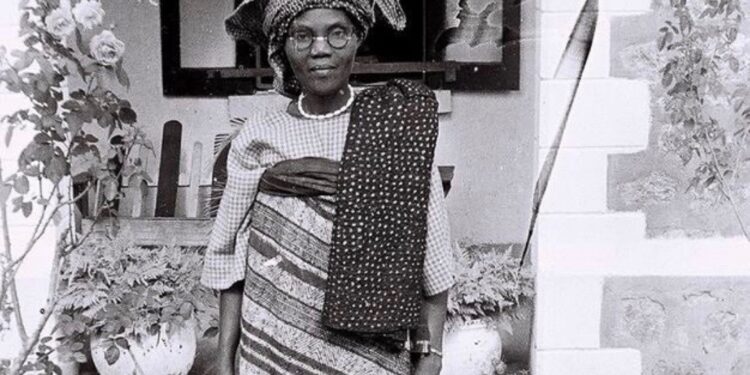By Milcah Tanimu
If you’re a student of history, you should have heard of some amazing female political activists Nigerians were so proud of during their time. These incredible women emerged at a time when women had little to no involvement in governance. Through their determination, they overcame obstacles and advanced the status of women in Nigeria.
1. Funmilayo Ransome-Kuti
Funmilayo Frances Abigail Ransome-Kuti, born on October 25, 1900, in Abeokuta, Ogun State, was a pioneer in women’s rights and education. Her parents, Chief Daniel Olumeyuwa Thomas and Lucretia Omoyeni Adeosolu, believed in the importance of education. She was the first female student at Abeokuta Grammar School and later became a teacher.
In 1932, she founded the Abeokuta Ladies Club, which focused on empowering women through training in various skills and engaging in charity work. By 1940, the club embraced political activism, and in 1946, it was renamed the Abeokuta Women’s Union (AWU). The union, which included Grace Eniola Soyinka, fought against unfair taxes and prices imposed on market women.
Ransome-Kuti’s activism gained prominence when she led the AWU in protesting against the Alake of Egbaland’s tax policies. She championed many causes both domestically and internationally, meeting with global leaders and advocating for women’s rights. She died on April 13, 1978, after sustaining injuries during a military invasion of her family’s property. She was awarded the Member of Order of Niger (MON) and the Lenin Peace Prize.
2. Margaret Ekpo
Margaret Ekpo, born on July 27, 1914, in Creek Town, Cross River State, was a prominent political activist. She began her career as a teacher before studying domestic science at the Dublin Institute of Technology. Her political involvement started in 1945 when she attended a meeting on behalf of her husband, addressing the mistreatment of indigenous doctors by colonial masters.
Ekpo formed the Market Women Association in Aba to advocate for women’s economic and political rights. She collaborated with Funmilayo Ransome-Kuti to protest the killings of Enugu coal workers. Ekpo was detained for three years during the civil war but continued her activism, leading to women outnumbering men as voters in Aba. In 1961, she won a seat in the Eastern Regional House of Assembly, promoting women’s progress. She died in 2006.
3. Hajia Gambo Sawaba
Hajia Gambo Sawaba, born on February 15, 1933, in Zaria, Kaduna State, was a notable political activist from northern Nigeria. Her father was Ghanaian, and her mother was Nupe. Sawaba joined politics at 17, becoming a member of the Northern Element Progressive Union (NEPU). She campaigned against child marriages, forced labor, and for women’s education.
Sawaba faced imprisonment for her activism but continued to organize meetings advocating for women’s political inclusion. In 1956, she marched to the Premier’s office demanding a franchise for northern women. Nicknamed “Gambo Sawaba” by Aminu Kano, she admired Funmilayo Ransome-Kuti. She died in October 2001.
4. Adunni Oluwole
Adunni Oluwole, born in 1905 in Ibadan and raised in Lagos, was a political activist, preacher, and founder of the Nigerian Commoners Liberal Party in 1954. She opposed the immediate fight for independence, fearing that African politicians would abuse power. Her teachings resonated with rural Yorubas, advocating for gradualism over immediate independence. She supported workers’ rights and fought for equality. Oluwole died in 1957.
5. Elizabeth Adekogbe
Elizabeth Adeyemi Adekogbe, born in 1919, was an educator, journalist, and activist. She founded the Women Movement of Nigeria in 1953, focusing on equal educational opportunities, economic stability, and women’s political rights. She collaborated with Funmilayo Ransome-Kuti and Margaret Ekpo, leading to the formation of the Federation of Nigerian Women’s Organization (FNWO) in 1953. She later changed the movement’s name to the National Council of Women. Adekogbe participated in political campaigns and formed the Council of Women’s Societies in 1957. She died in 1968.
6. Janet Nwadiogo Mokelu
Janet Nwadiogo Mokelu, born on February 7, 1910, in Asaba, Delta State, was a committed political activist, teacher, and philanthropist. She led the Anglican Women’s Conference for 25 years, initiating projects such as a boys’ secondary school and a weaving industry. Mokelu was one of Nigeria’s first female lawmakers, advocating for equal pay for women and mobilizing protests against colonial policies. She fought for women’s voting rights and equity. Mokelu died on March 31, 2003.
These women have left indelible marks on Nigeria’s political history, advancing women’s rights and setting the stage for future generations.

Leave a Reply